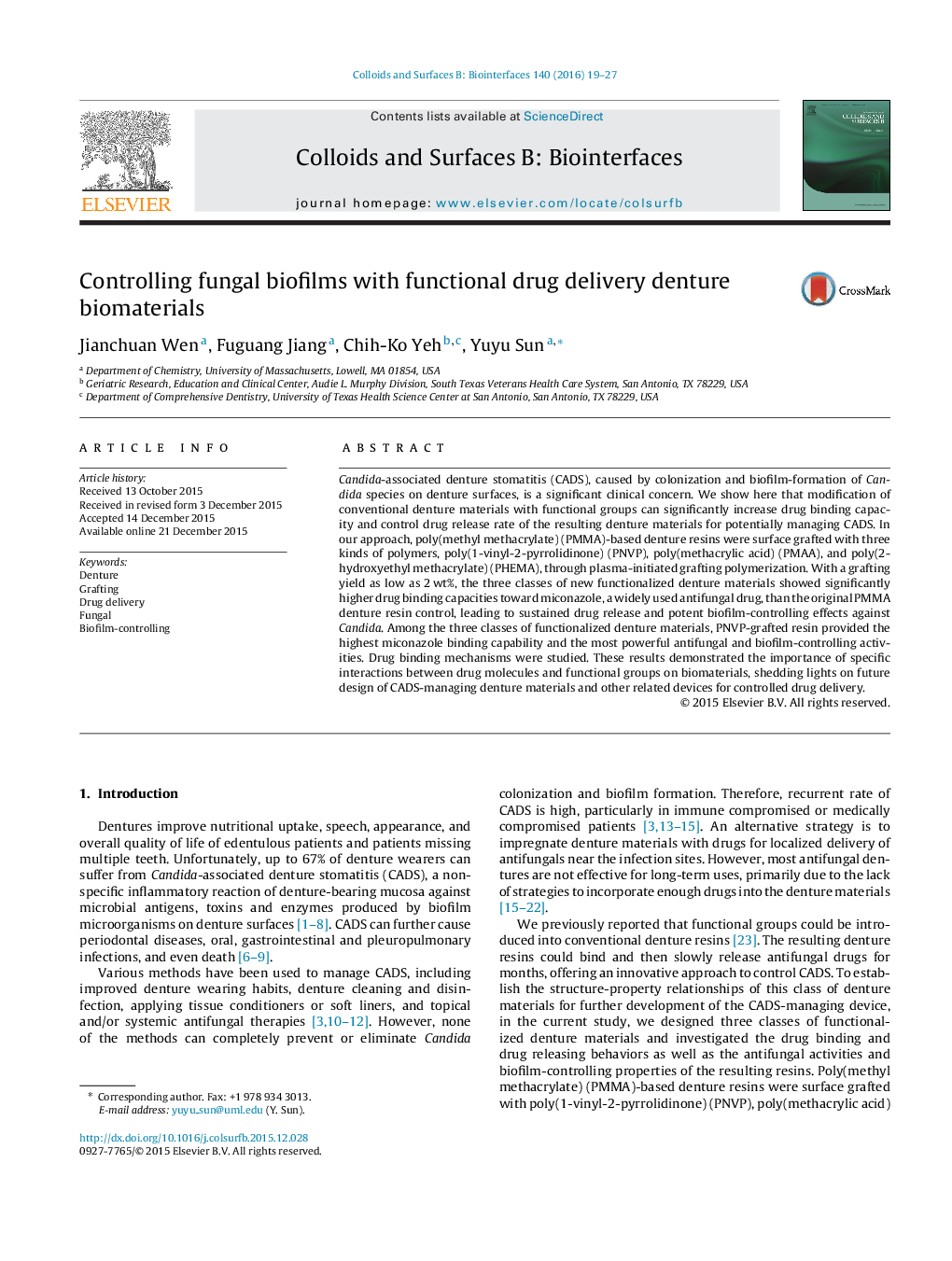| کد مقاله | کد نشریه | سال انتشار | مقاله انگلیسی | نسخه تمام متن |
|---|---|---|---|---|
| 599085 | 1454264 | 2016 | 9 صفحه PDF | دانلود رایگان |
• PNVP, PMAA and PHEMA were grafted onto PMMA denture base resins by plasma-initiation.
• Grafted denture materials showed significantly higher miconazole binding capacities.
• Mechanisms of enhanced drug binding capacities were established.
• Drug-containing denture materials demonstrated sustained drug release.
• Drug-containing denture materials provided potent fungal biofilm controlling effects.
Candida-associated denture stomatitis (CADS), caused by colonization and biofilm-formation of Candida species on denture surfaces, is a significant clinical concern. We show here that modification of conventional denture materials with functional groups can significantly increase drug binding capacity and control drug release rate of the resulting denture materials for potentially managing CADS. In our approach, poly(methyl methacrylate) (PMMA)-based denture resins were surface grafted with three kinds of polymers, poly(1-vinyl-2-pyrrolidinone) (PNVP), poly(methacrylic acid) (PMAA), and poly(2-hydroxyethyl methacrylate) (PHEMA), through plasma-initiated grafting polymerization. With a grafting yield as low as 2 wt%, the three classes of new functionalized denture materials showed significantly higher drug binding capacities toward miconazole, a widely used antifungal drug, than the original PMMA denture resin control, leading to sustained drug release and potent biofilm-controlling effects against Candida. Among the three classes of functionalized denture materials, PNVP-grafted resin provided the highest miconazole binding capability and the most powerful antifungal and biofilm-controlling activities. Drug binding mechanisms were studied. These results demonstrated the importance of specific interactions between drug molecules and functional groups on biomaterials, shedding lights on future design of CADS-managing denture materials and other related devices for controlled drug delivery.
Denture resins with functional groups showed significantly higher miconazole binding capacities, and provided potent Candida biofilm controlling effects.Figure optionsDownload as PowerPoint slide
Journal: Colloids and Surfaces B: Biointerfaces - Volume 140, 1 April 2016, Pages 19–27
